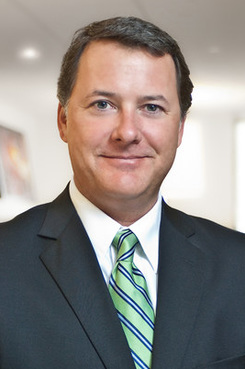Years of Litigation Over Allman Movie Train Wreck Ends in CSX Settlement
The undisclosed payment satisfies a $3.9 million judgment against the railroad resulting from apportionment of a total $11.2 million verdict in a 2017 trial. It's the conclusion of litigation against the last of a series of defendants involved in the train crash on the set of a movie about musician Gregg Allman.
January 30, 2019 at 12:49 PM
6 minute read
 Jeff Harris of Harris Lowry Manton (Courtesy photo)
Jeff Harris of Harris Lowry Manton (Courtesy photo)The family of camera assistant Sarah Jones has reached a confidential settlement with CSX Transportation over her 2014 death while filming “Midnight Rider” near Savannah, their attorney said Wednesday.
The undisclosed payment satisfies a $3.9 million judgment against the railroad resulting from apportionment of a total $11.2 million verdict in a 2017 trial. It's the conclusion of litigation against the last of a series of defendants involved in the train crash on the set of a movie about musician Gregg Allman.
“It has truly been an honor to represent the Jones family and to work to secure justice on behalf of Sarah Jones,” lead plaintiffs' counsel Jeff Harris of Harris Lowry Manton said in a statement released Wednesday. “We hope that no other family will endure the loss of a loved one due to unsafe conditions filming on location or on set.”
Harris tried the case with associate Yvonne Godfrey of his firm, which has offices in Atlanta and Savannah, and Rebecca Franklin Harris of Franklin Law in Savannah, who is married to Jeff Harris. They represent represented Richard and Elizabeth Jones, parents of Sarah Jones.
“This has been a long journey, and we're deeply grateful for the support we've received from family, friends and members of the film community,” Richard Jones said in the law firm's statement. “We're relieved that the lawsuit has concluded.”
Sarah Jones was 27 when she was struck and killed on the Doctortown, Georgia, trestle. A CSX train hit the movie set where she was working on Feb. 20, 2014, according to the lawsuit. The film “Midnight Rider” was to be a biopic based on musician Gregg Allman's autobiography, “My Cross to Bear.”
Richard and Elizabeth Jones, Sarah's parents, sued a dozen defendants, including CSX, and the movie's director and producers. The Jones family reached confidential settlements with 11 defendants in 2014. CSX is the only one that went to trial.
CSX said it would appeal. The company was represented by Jay Traynham and Walker Stewart of Hall Bloch Garland & Meyer in Macon defended CSX at trial, along with Daryl Clarida of the firm's Atlanta office. On behalf of the company, the lawyers declined to comment Wednesday.
After the trial, the company said: “CSX is deeply sympathetic to the terrible loss suffered by the family of Ms. Sarah Jones, but respectfully disagrees with the conclusions reached by the jury today and will appeal.”
The case was tried before Chatham County State Court Judge Gregory Sapp. The jury awarded $1.99 million for the conscious pain and suffering, and $9.22 million for the full value of the life of Sarah Jones, then apportioned fault among 10 parties on the verdict form. CSX took the lion's share, with 35 percent.
Others with portions of fault had already settled their lawsuits, except for two notable ones: The jury found no fault on the part of Jones herself or “unknown film crew members.” She, like the other members of the film crew, went to work assuming they had permission to be there, Harris said after the verdict.
The complaint also claimed crew members had been falsely informed that only two trains a day passed through the spot where they were setting up—to film a dream sequence with a metal bed on a railroad track and William Hurt starring as Allman.
The film's director, Randall Miller, served a year in jail after pleading guilty to involuntary manslaughter and criminal trespassing. The railroad blamed Miller and pointed out that the filmmakers were trespassing on the trestle, according to attorneys.
But, like most tragedies that wind up in litigation, Harris said, “the story was more complex.” He called the disaster “a joint mistake.”
An important part of the case for the Jones family was asserting that the engineer of the train that hit the crew should have tried to stop. Instead, Harris said his expert testified the engineer did not apply the service brake or emergency brake until five seconds after he hit the movie set—with equipment flying and crew members trying to scramble off the high trestle.
CSX lawyers argued that the engineer didn't apply the brakes because he feared the containers on the train would have tumbled off on the crew, or the train would have derailed, according to Harris, who countered that, after the crash, the engineer did hit the brakes, and the train did not derail or lose cargo.
The family has started a nonprofit organization called the Sarah Jones Foundation dedicated to safety in the movie business, Harris said. Crews have initiated a final prefilming daily safety check—called “the Jonesy”—in her honor.
“Midnight Rider” was never finished. The initial lawsuit included Allman as a defendant because he had been quoted saying he was closely involved with the production, Harris said. But Allman, his manager and his film company, Open Road, were dropped from the lawsuit in 2014 because they had no knowledge of the decision to film on a train trestle, according to Harris. Of Allman, Harris said, “He was completely blameless.”
Around that time, Harris and Allman crossed paths in Atlanta's Hartsfield-Jackson Atlanta International Airport. Harris immediately recognized the singer-songwriter, who had the same nearly waist-length hair he'd had since he became famous for his blend of rock, jazz and country music in the 1970s. But Harris said he didn't speak because he wasn't sure how Allman would react.
Allman died in May 2017 at the age of 69, two months before the trial of the lawsuit that is now finally over.
Read more:
Death of Sarah Jones Sparked Movie Safety Movement
This content has been archived. It is available through our partners, LexisNexis® and Bloomberg Law.
To view this content, please continue to their sites.
Not a Lexis Subscriber?
Subscribe Now
Not a Bloomberg Law Subscriber?
Subscribe Now
NOT FOR REPRINT
© 2025 ALM Global, LLC, All Rights Reserved. Request academic re-use from www.copyright.com. All other uses, submit a request to [email protected]. For more information visit Asset & Logo Licensing.
You Might Like
View All

On The Move: Ex-Partner Returns to Lead Nelson Mullins Corporate Group, Burr & Forman Hires University GC as COO
5 minute read
Law Firm Sued for Telemarketing Calls to Customers on Do Not Call Registry

Evidence Explained: Prevailing Attorney Outlines Successful Defense in Inmate Death Case
Trending Stories
- 1Corporate Litigator Joins BakerHostetler From Fish & Richardson
- 2E-Discovery Provider Casepoint Merges With Government Software Company OPEXUS
- 3How I Made Partner: 'Focus on Being the Best Advocate for Clients,' Says Lauren Reichardt of Cooley
- 4People in the News—Jan. 27, 2025—Barley Snyder
- 5UK Firm Womble Bond to Roll Out AI Tool Across Whole Firm
Who Got The Work
J. Brugh Lower of Gibbons has entered an appearance for industrial equipment supplier Devco Corporation in a pending trademark infringement lawsuit. The suit, accusing the defendant of selling knock-off Graco products, was filed Dec. 18 in New Jersey District Court by Rivkin Radler on behalf of Graco Inc. and Graco Minnesota. The case, assigned to U.S. District Judge Zahid N. Quraishi, is 3:24-cv-11294, Graco Inc. et al v. Devco Corporation.
Who Got The Work
Rebecca Maller-Stein and Kent A. Yalowitz of Arnold & Porter Kaye Scholer have entered their appearances for Hanaco Venture Capital and its executives, Lior Prosor and David Frankel, in a pending securities lawsuit. The action, filed on Dec. 24 in New York Southern District Court by Zell, Aron & Co. on behalf of Goldeneye Advisors, accuses the defendants of negligently and fraudulently managing the plaintiff's $1 million investment. The case, assigned to U.S. District Judge Vernon S. Broderick, is 1:24-cv-09918, Goldeneye Advisors, LLC v. Hanaco Venture Capital, Ltd. et al.
Who Got The Work
Attorneys from A&O Shearman has stepped in as defense counsel for Toronto-Dominion Bank and other defendants in a pending securities class action. The suit, filed Dec. 11 in New York Southern District Court by Bleichmar Fonti & Auld, accuses the defendants of concealing the bank's 'pervasive' deficiencies in regards to its compliance with the Bank Secrecy Act and the quality of its anti-money laundering controls. The case, assigned to U.S. District Judge Arun Subramanian, is 1:24-cv-09445, Gonzalez v. The Toronto-Dominion Bank et al.
Who Got The Work
Crown Castle International, a Pennsylvania company providing shared communications infrastructure, has turned to Luke D. Wolf of Gordon Rees Scully Mansukhani to fend off a pending breach-of-contract lawsuit. The court action, filed Nov. 25 in Michigan Eastern District Court by Hooper Hathaway PC on behalf of The Town Residences LLC, accuses Crown Castle of failing to transfer approximately $30,000 in utility payments from T-Mobile in breach of a roof-top lease and assignment agreement. The case, assigned to U.S. District Judge Susan K. Declercq, is 2:24-cv-13131, The Town Residences LLC v. T-Mobile US, Inc. et al.
Who Got The Work
Wilfred P. Coronato and Daniel M. Schwartz of McCarter & English have stepped in as defense counsel to Electrolux Home Products Inc. in a pending product liability lawsuit. The court action, filed Nov. 26 in New York Eastern District Court by Poulos Lopiccolo PC and Nagel Rice LLP on behalf of David Stern, alleges that the defendant's refrigerators’ drawers and shelving repeatedly break and fall apart within months after purchase. The case, assigned to U.S. District Judge Joan M. Azrack, is 2:24-cv-08204, Stern v. Electrolux Home Products, Inc.
Featured Firms
Law Offices of Gary Martin Hays & Associates, P.C.
(470) 294-1674
Law Offices of Mark E. Salomone
(857) 444-6468
Smith & Hassler
(713) 739-1250






